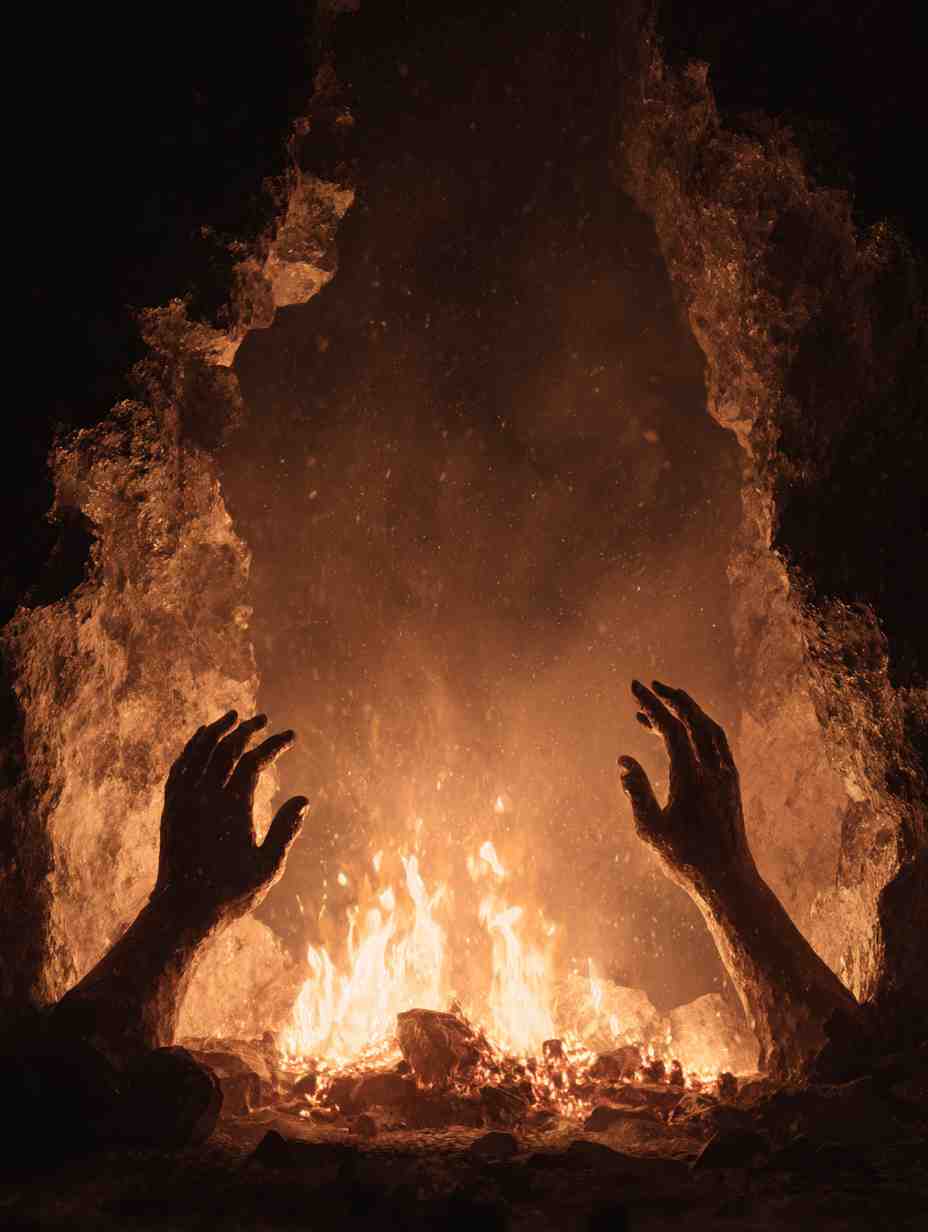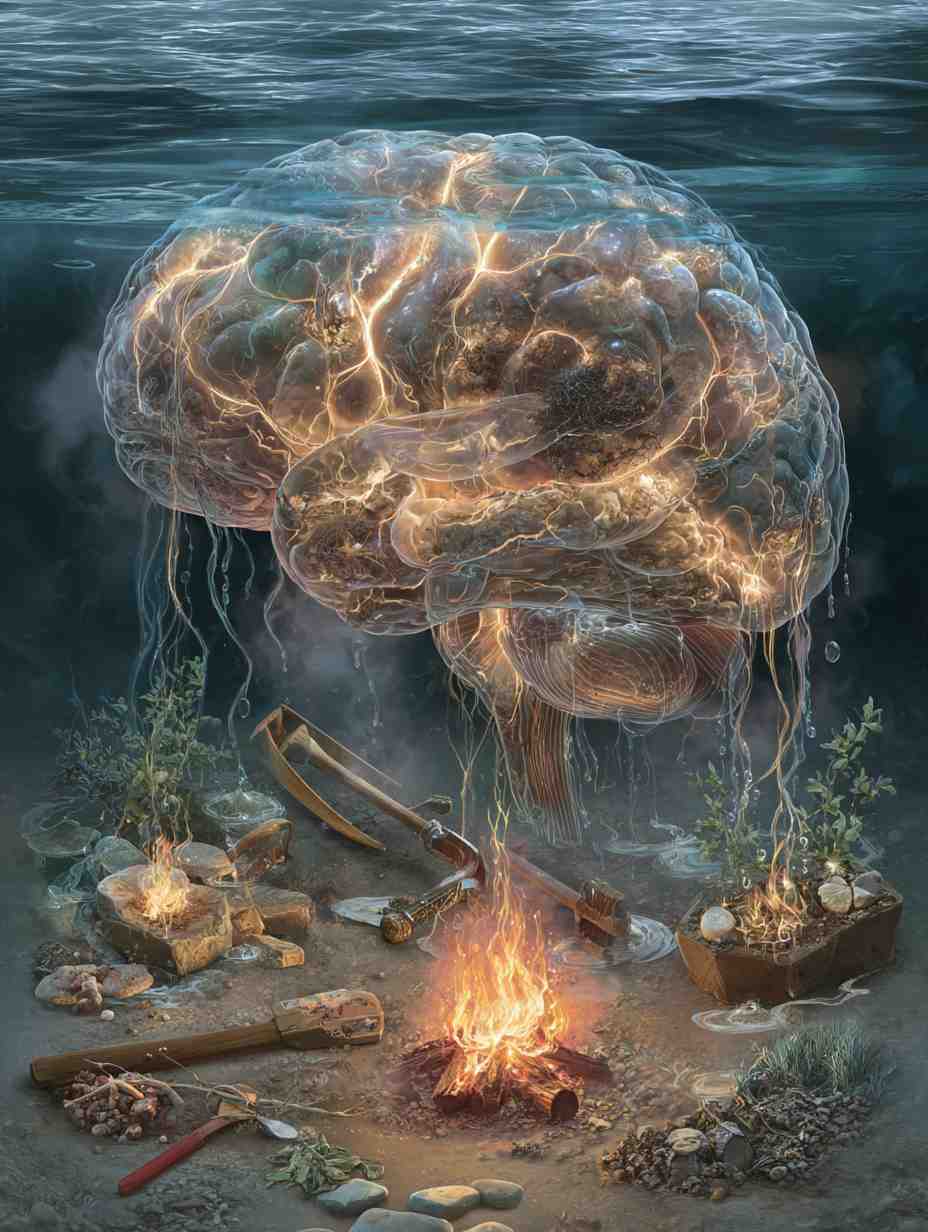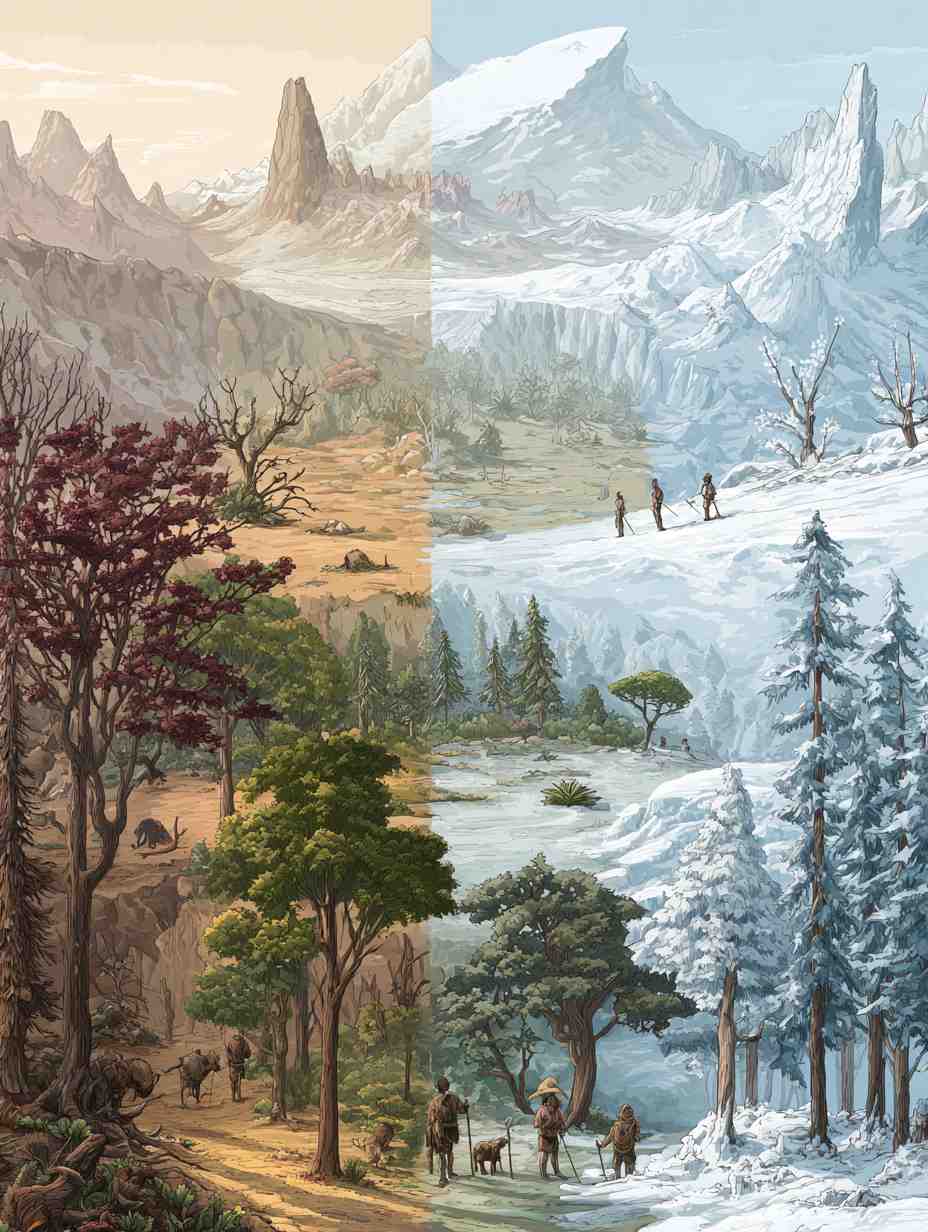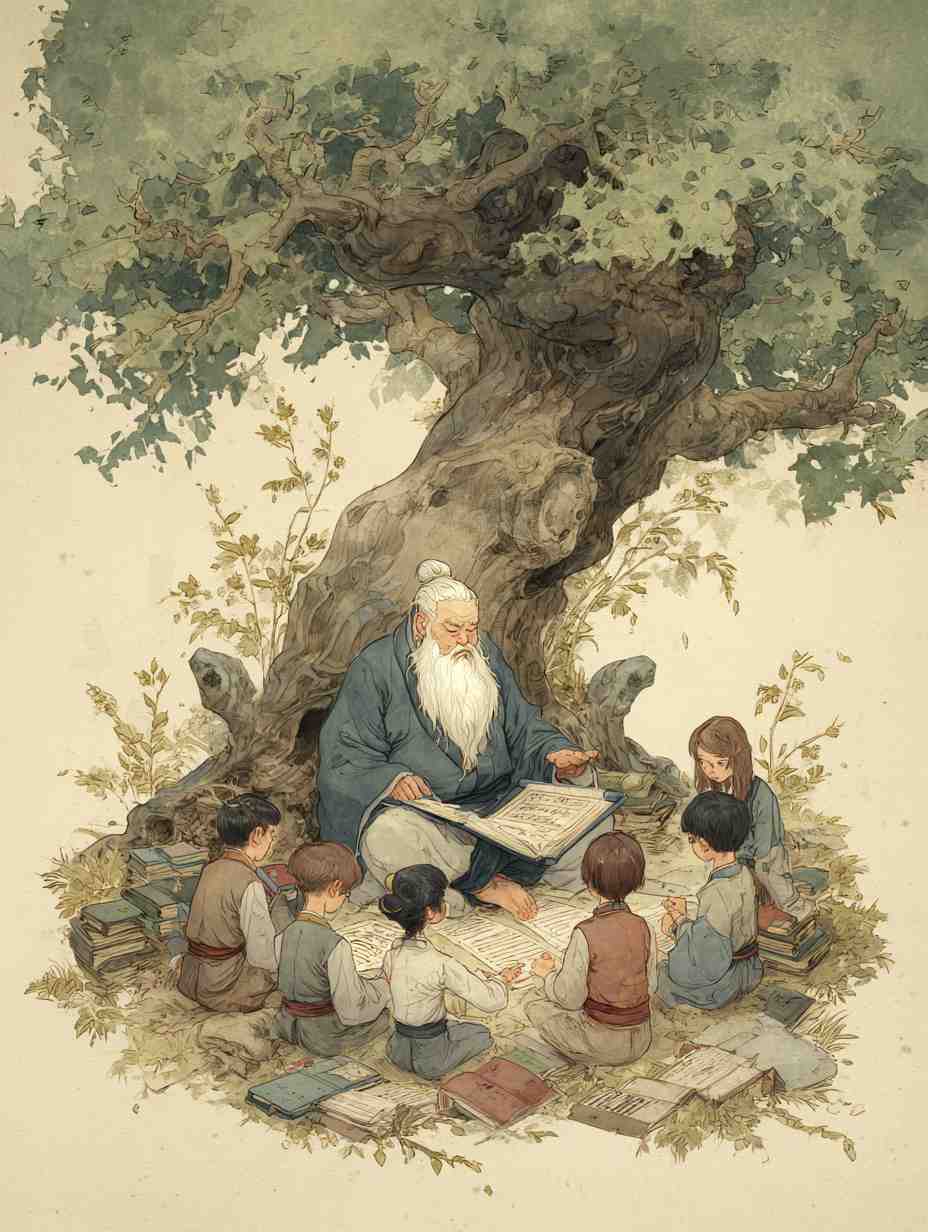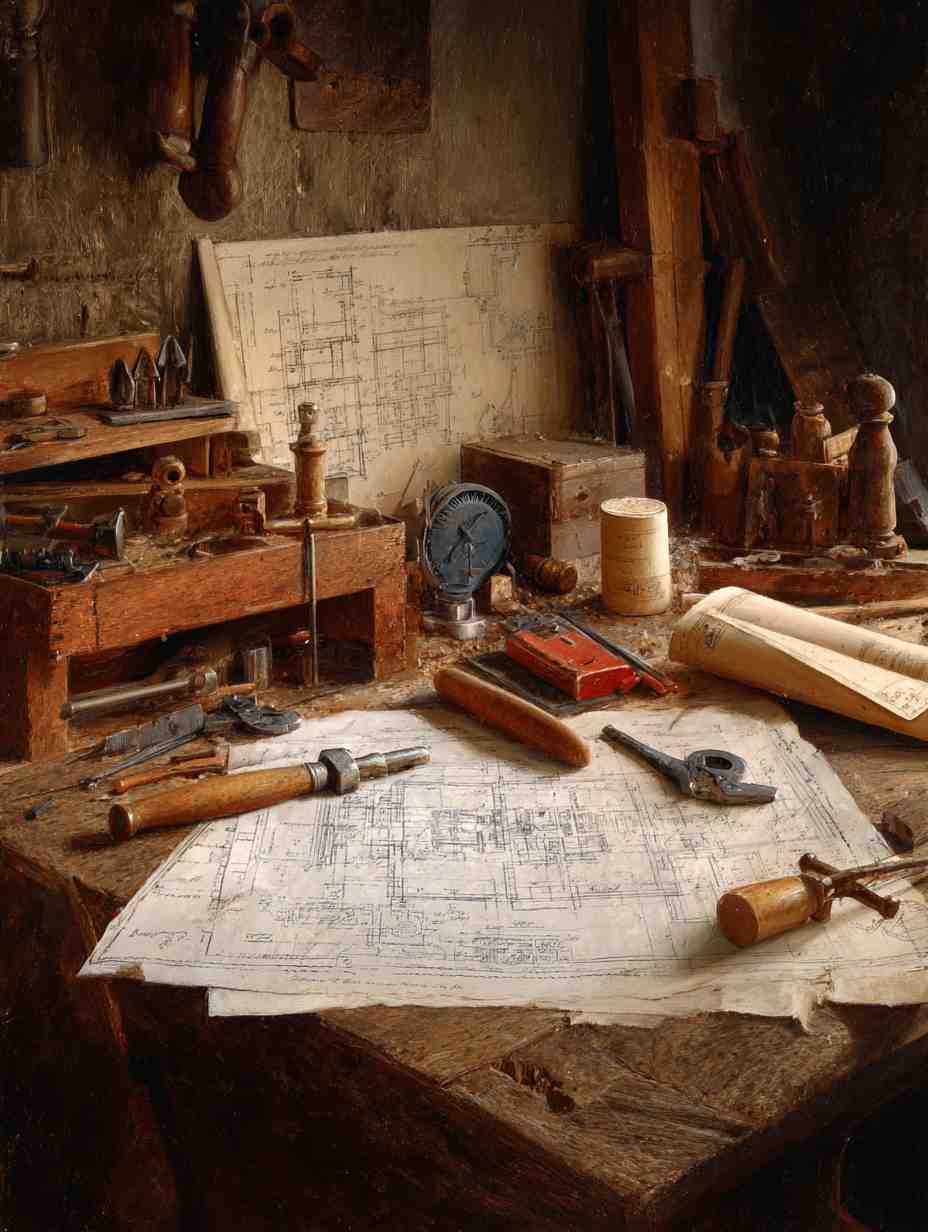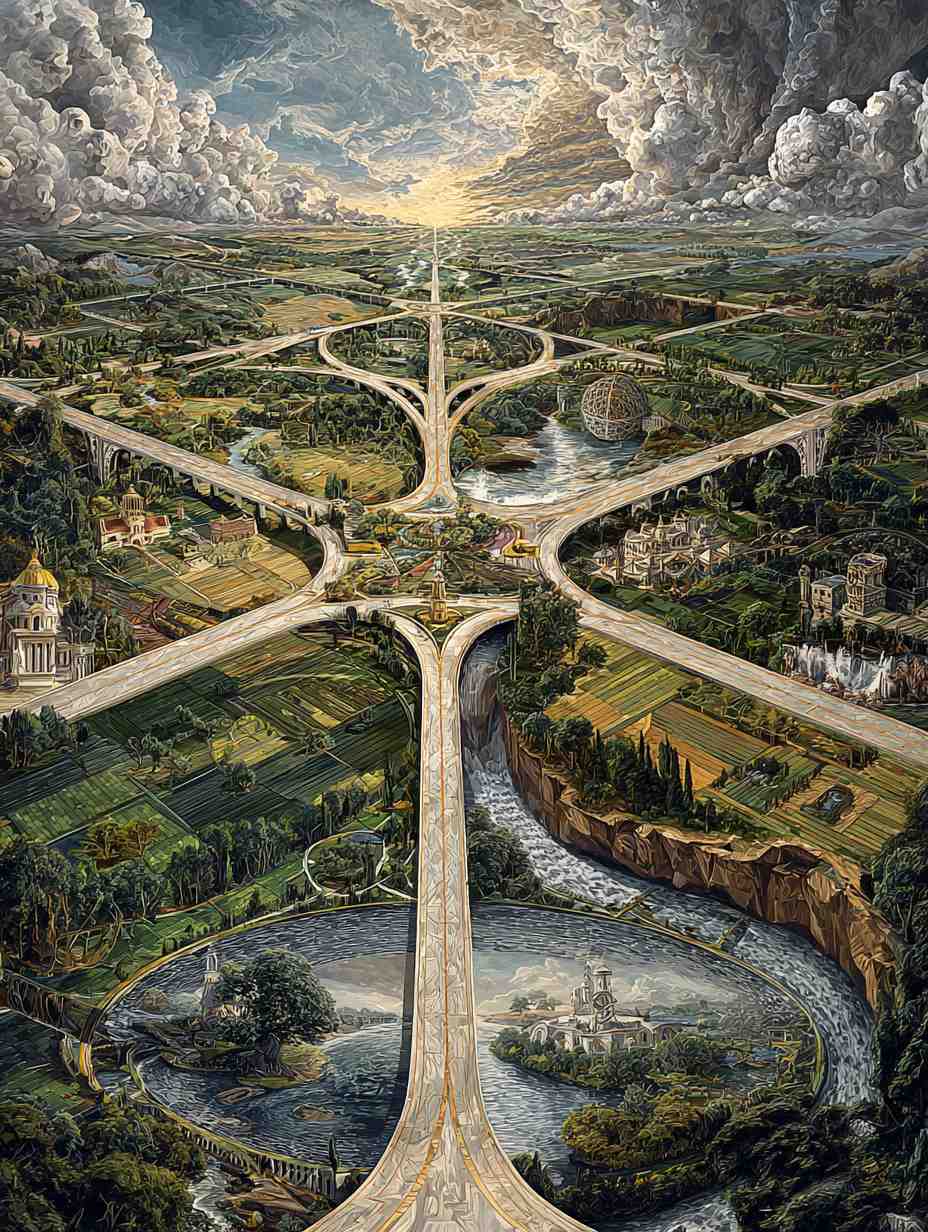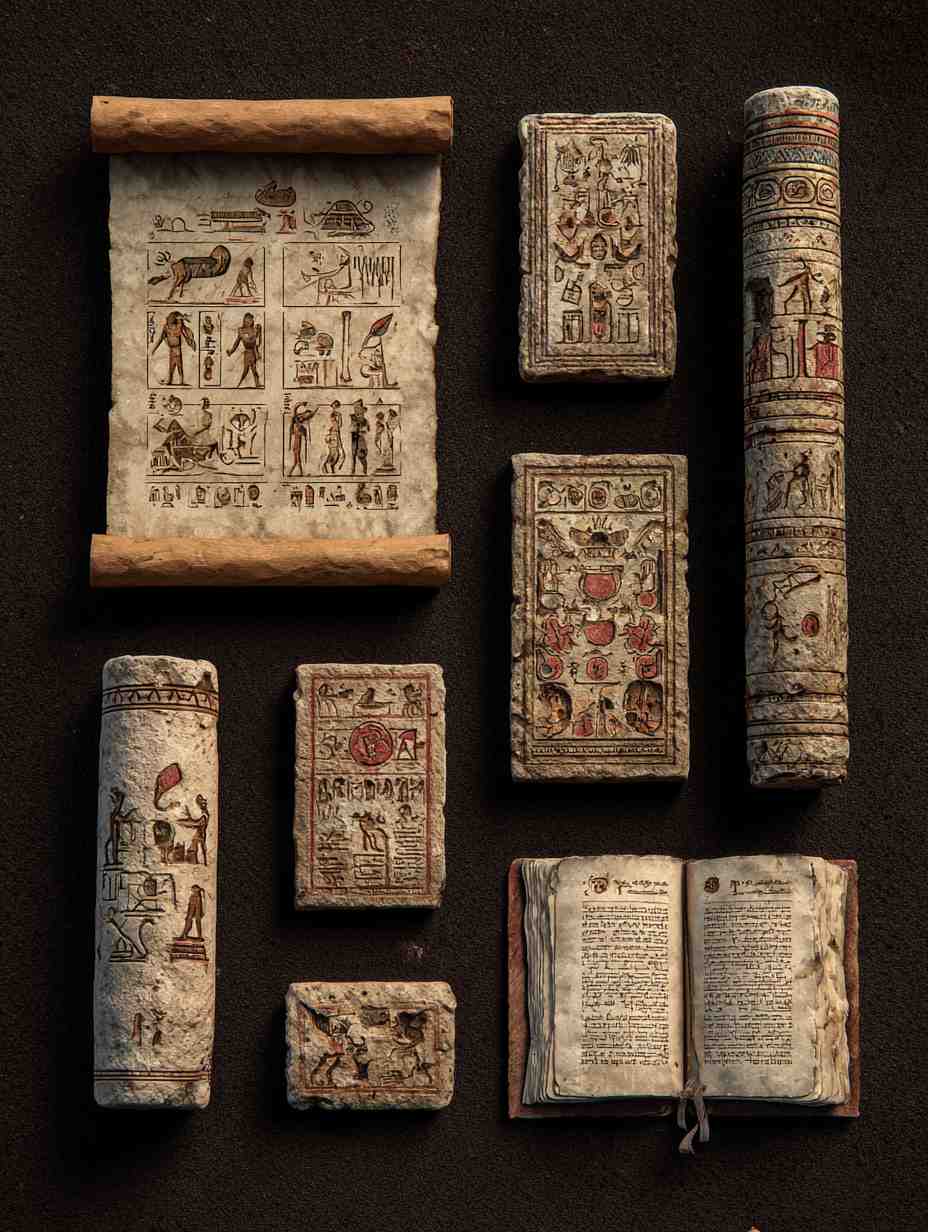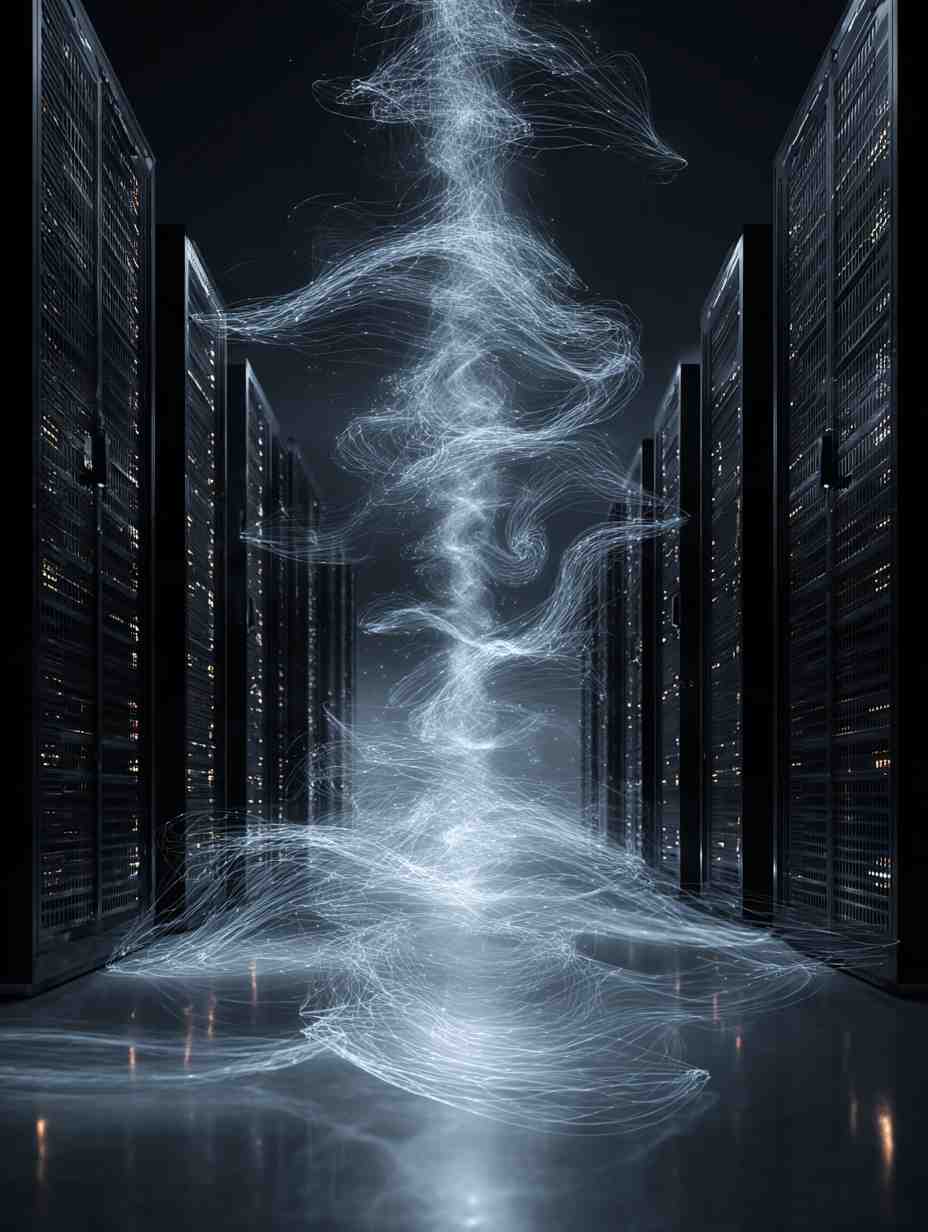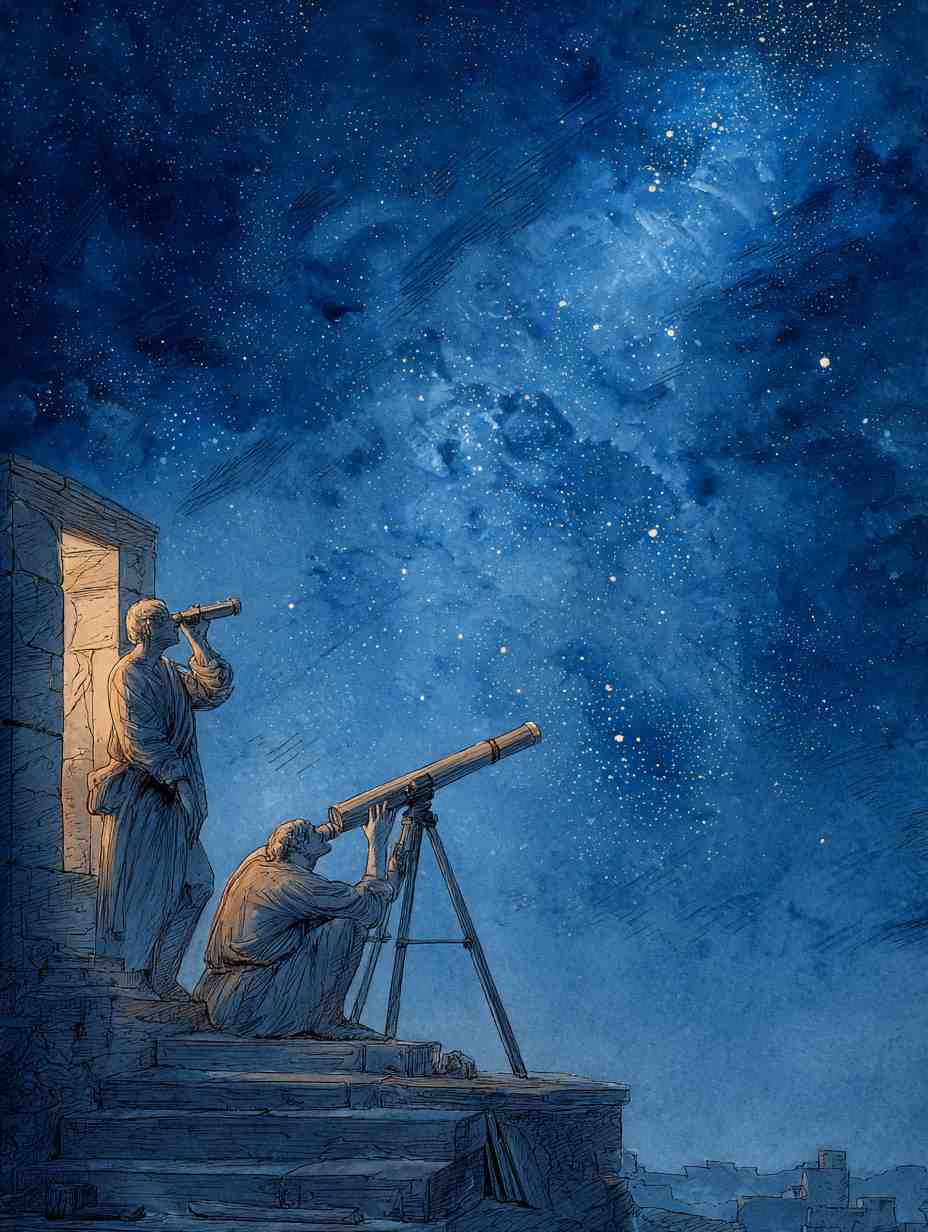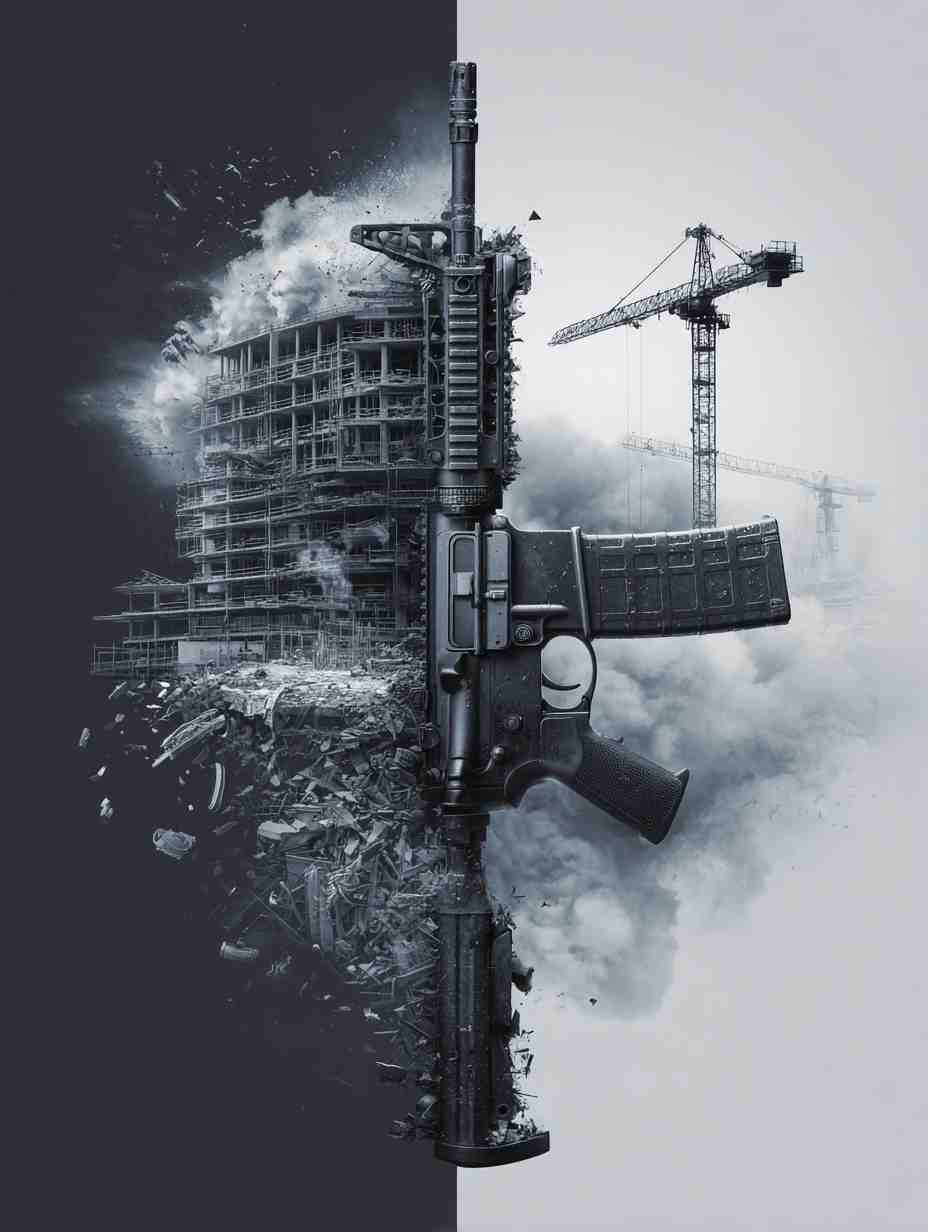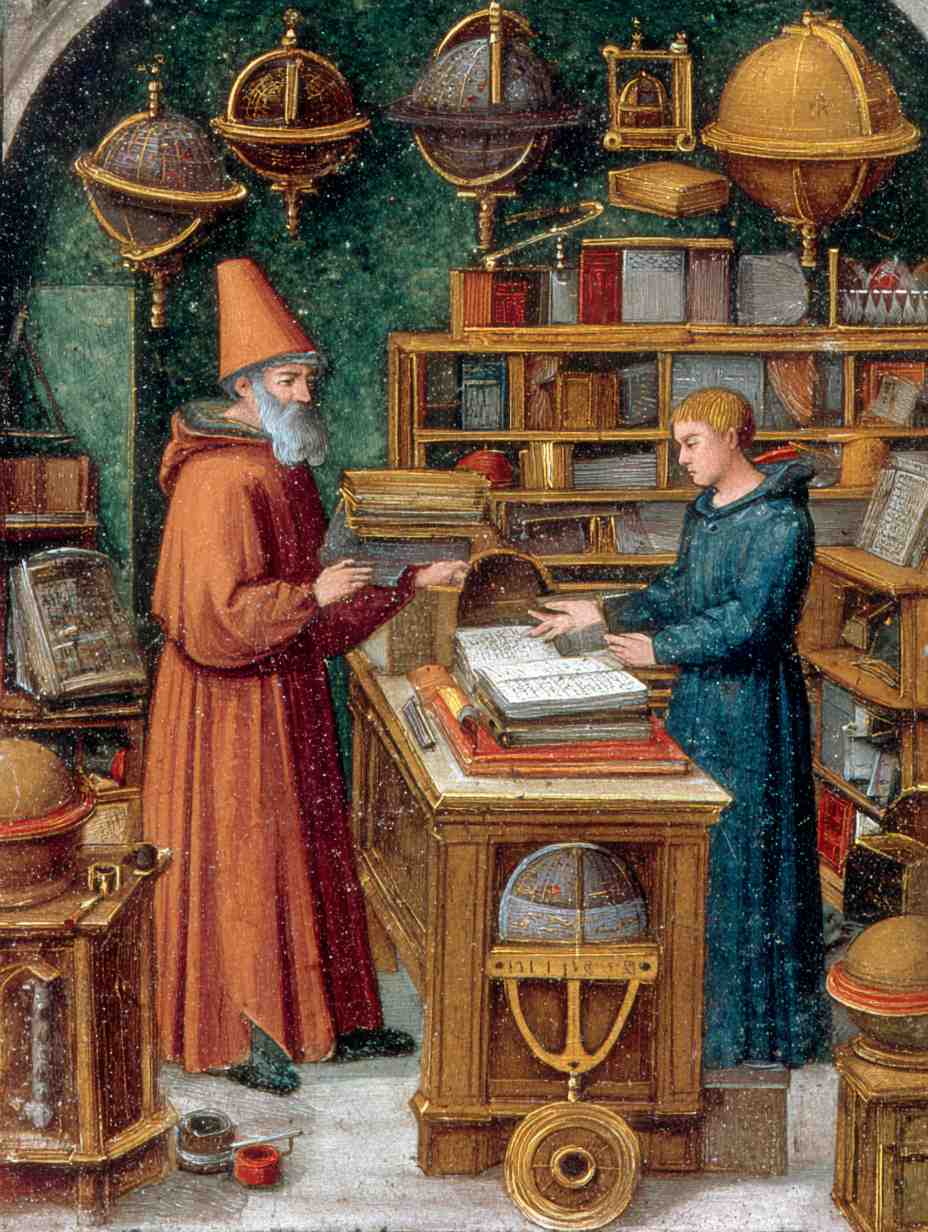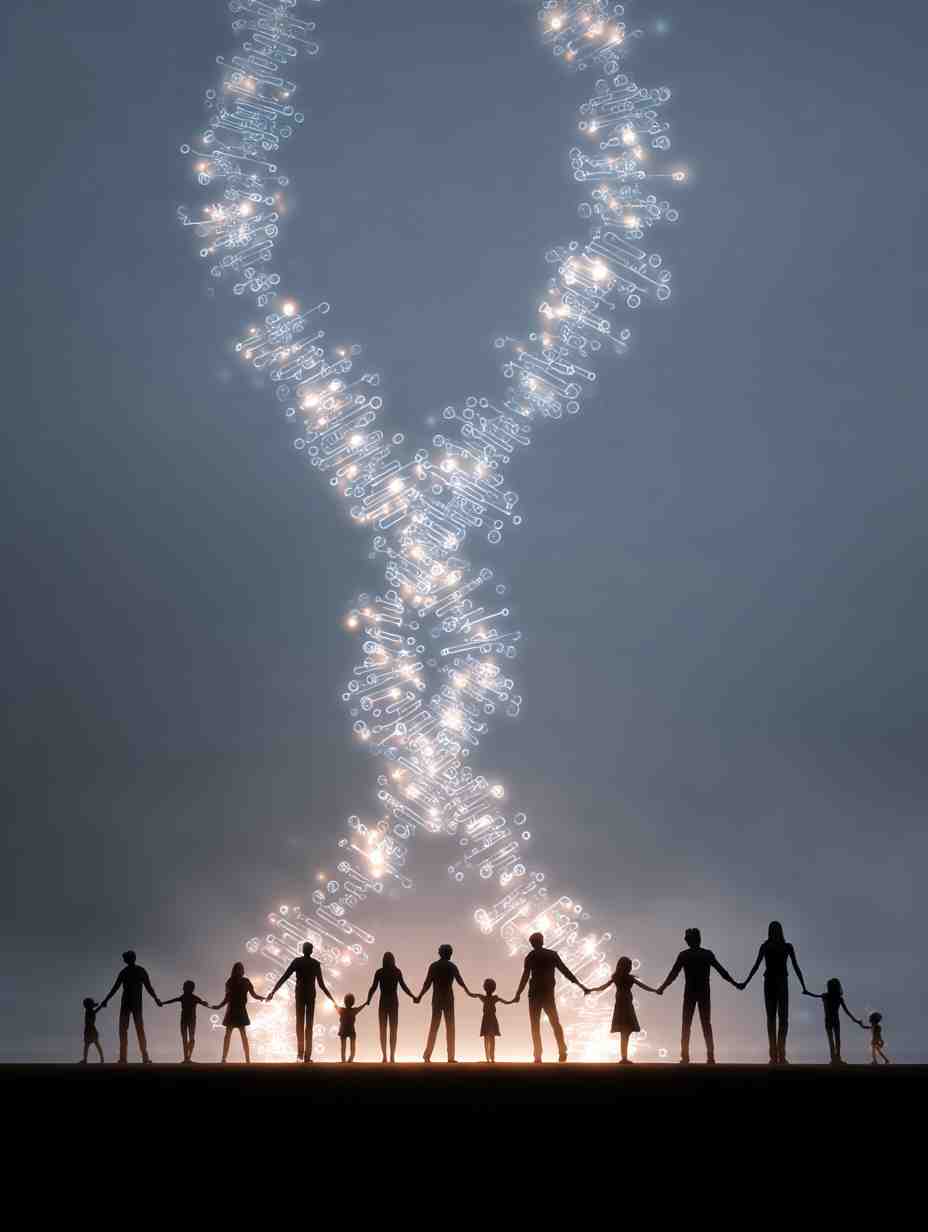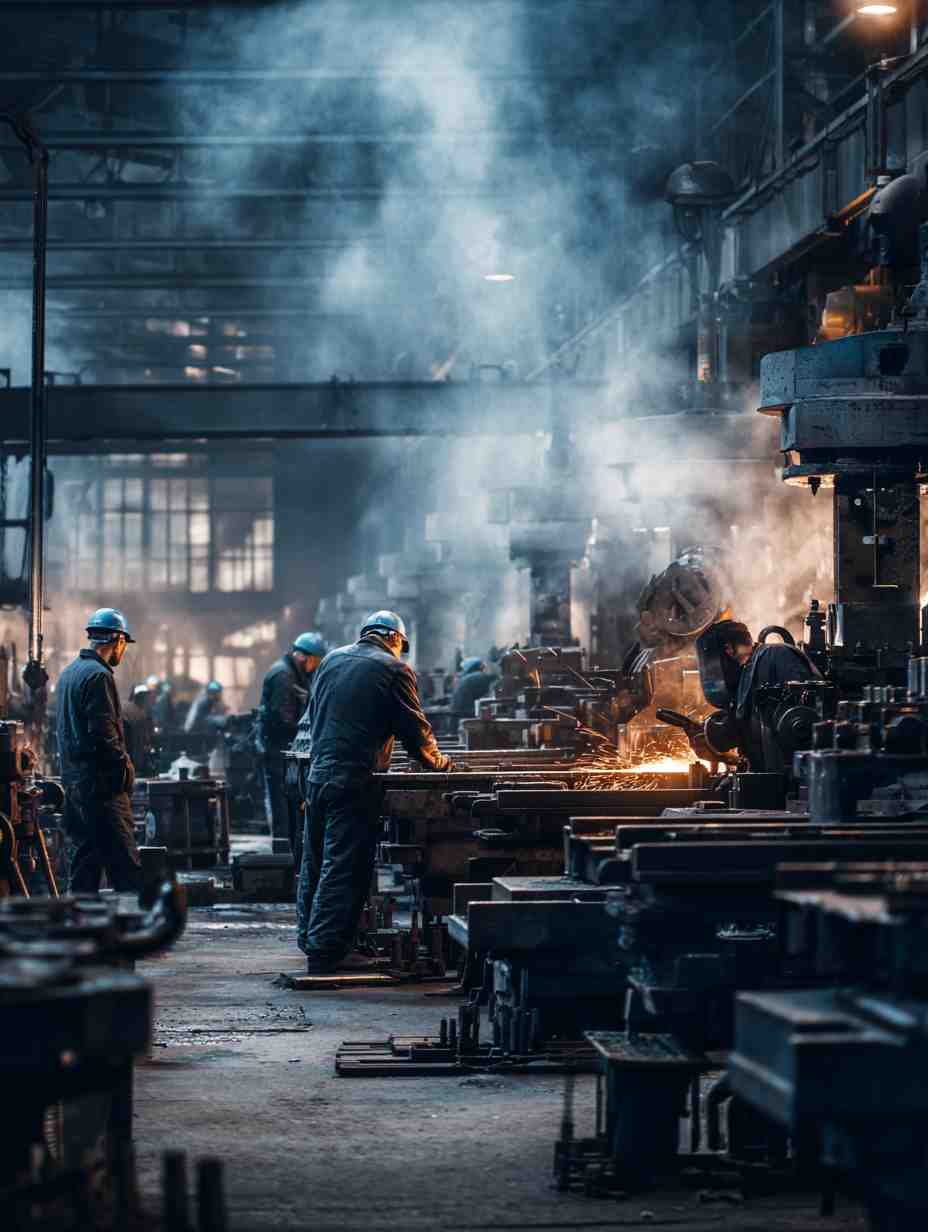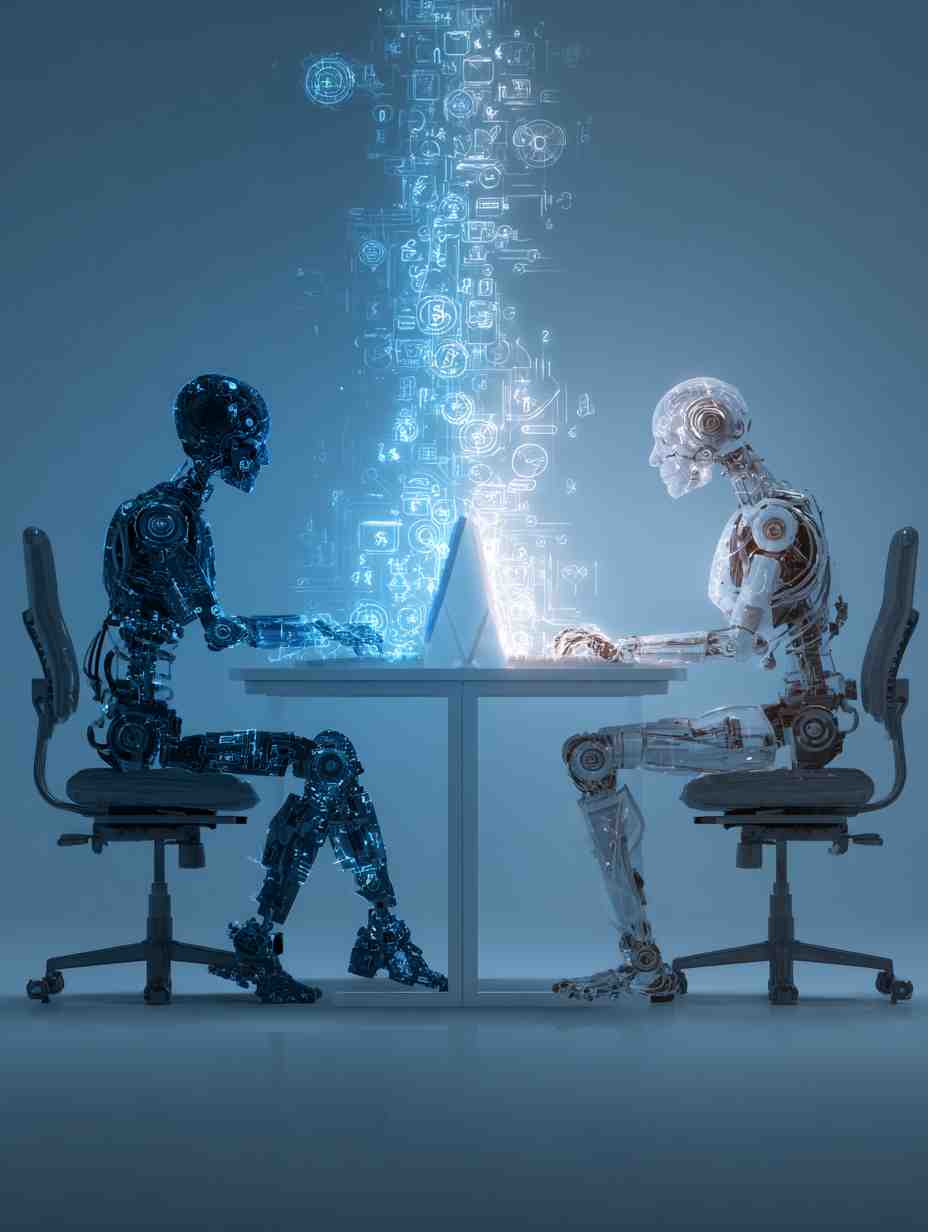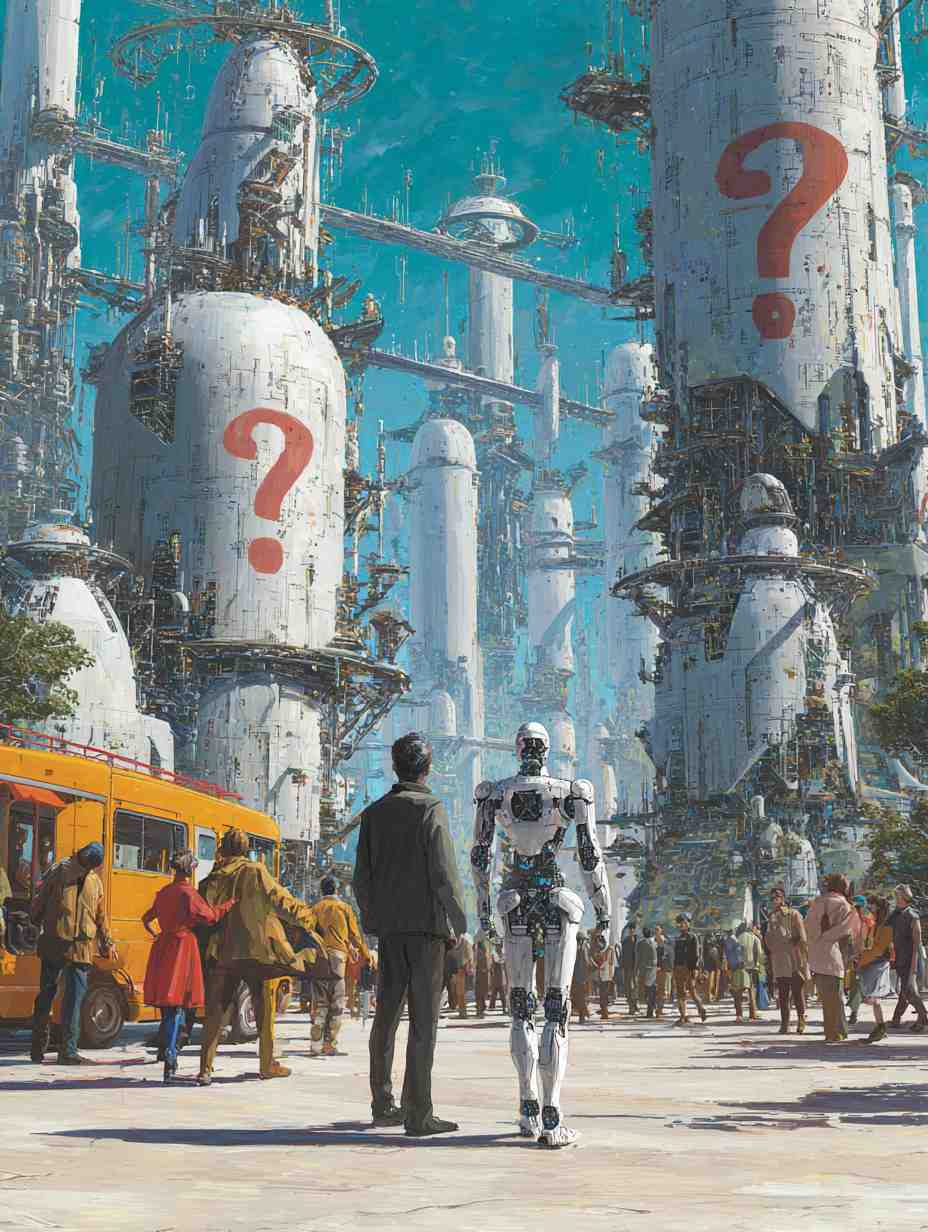1.1.- The History of Knowledge
"Know your limits first."
Humans have always sought knowledge since the beginning of time. Knowledge has played a fundamental role in the evolution of humanity, without it, we wouldn't be here, and I wouldn't be able to try to tell you why the end of knowledge is near.
At the beginning, when we humans started on planet Earth, the first thing that we needed to understand was our inherent capabilities from our physical to our mental capabilities.
And that's how we started through evolution to begin with, but all those inherent capabilities were limited by many factors, and to be able to extend them, we needed to learn, think and build.
We needed to learn a lot about our senses, about our unknown brains and about our environment. Because we humans have dealt with uncertainty since the beginning. We didn't know in advance what the dangers and opportunities we had waiting for us were in the environments where we lived.
And we have lived in many environments, since Earth is a very diverse planet. And evolution has played a key role in this too. So, all the different "versions" of human beings since the beginning of it all, have traversed a unique path of knowledge and a great and diverse path of learning.
Some inherited from previous species that we are derived from, helping us to improve our inherent capabilities, so we can tame the environments that we have been living in, with minimal adaptations, but most importantly, we also needed a lot of knowledge gathering and a lot of knowledge transfer between us.
Some of this directly modified our biology and most of it went outside of our body as extra perks, we also started to build new capabilities, increasing our understanding, and transferring this knowledge to other fellow human beings.
So, the history of knowledge is rooted in the history of humanity. Without it, we wouldn't be able to evolve, we wouldn't be able to create the societies where we live today, and we wouldn't be able to do many of the great and bad things that humans have done through history.
To find the beginning of the story, we need to look back thousands of years, imprinted in our biology is the missing piece to understand it. And it all started exploring how to behave and survive in the environments where we lived.
Living in an environment with a lot of unknown dangers was fundamental to face them and be able to understand the tricky laws of nature that rule our world, without this knowledge, the simple act of survival was not possible.
Environment knowledge acquisition is a needed trait for humans to be able to populate planet Earth, through our own evolution, but also due to the different locations where we settled, we simply needed to gather that knowledge to thrive.
Of course, we wanted to extend our innate physical and mental capabilities, for that we also needed to start gathering knowledge, transferring knowledge, and using it to create "tools".
And we have been creating tools to extend our limitations for a very long time. Without tools, from fire to hammer to anything else you can imagine in between, we wouldn't be able to keep conquering new environments.
In the journey to conquer the environments where we lived, knowledge was simply key, but we needed to go beyond the physical capabilities imposed by our body and our senses, we also extend our mental capabilities.
Without this advanced "brain", evolution won't be possible and neither the modern societies where we live today, with its good things and all its problems too.
When we try to pinpoint when the origin of knowledge is, we simply can trace it to the dawn of humanity, because they are fully linked. We cannot dissociate knowledge from humans, or at least we couldn't until now.
Tracing back the origins of learning, maybe a bit challenging, and there are many areas of science that have been looking to the relationship between different physical and mathematical properties and the essence of knowledge and learning. For example, entropy is one of these areas, dealing with order, the energy of a system and the amount of information or knowledge that it has, Bobby Azarian in his last book The Romance of Reality explored nicely this amongst other related topics.
When we think about human biology, it's also fundamental how we process and gather knowledge, with all the physical properties and human systems involved in it. Also, how we deal with time is key, learning is not something that you do once, it's something that you need to continuously do.
Starting from the top, how our brain works is one of the big mysteries even today, but we keep trying to find ways to understand how some of its basic principles go, how we get knowledge from our senses and how we process this knowledge to try to predict the future or what is going to happen next.
We are prediction machines, and we try to anticipate how the world works and how we are going to be better off by taking different actions or paths, so it's not just a matter of trying to have good brains, but we need to have good senses. And the mix between the senses and how we interact with the environment is really what made the process of learning and knowledge acquisition possible.
1.2.- Knowledge vs Wisdom
"Use it or lose it."
It's clearly fundamental to gather knowledge. A human without knowledge doesn't seem to be very functional in any aspect of life, and we are starting to delegate knowledge to machines, this will be deeply covered in the following chapters, and we need to see what is left for humans. A typical human being gathers knowledge to improve, to create and build, to share it, or simply for the joy of it.
There is plenty of knowledge to be learnt, and then of course many ways to use it. Once humans start not only to gather knowledge but start processing it and using it for some specific tasks, then knowledge also starts to evolve.
And this evolution of knowledge, or knowledge put to practice, can somehow be understood as wisdom. Because wisdom is beyond knowledge, and this usage of knowledge to build, to create, to think, and even to go beyond and try to see what the future will be, this is wisdom.
Wisdom can also be seen as the sum of knowledge, but of practical knowledge, of knowledge with a specific purpose, not just for the essence of gathering knowledge per se, much better, using knowledge to do stuff, building new knowledge upon the previous knowledge. This is also the essence of wisdom.
Wisdom is a bit like trying to predict from previous experience what is going to happen in the future. Wisdom lets you create where previously there was nothing. Mixing different pieces of knowledge, even unconnected knowledge, all of these can help you grow your wisdom and imagine the scenarios to come.
With these different steps, between how you gather knowledge, how you store knowledge, learn how to multiply your knowledge, and then how to use it all, lays a path to wisdom.
The path to wisdom is always open for us, there is so much knowledge that we can gather through our lives, that is almost unlimited, then wisdom we could say is even bigger. Basically, there is no practical limit to wisdom, only the physical limits and the biological constraints that are imposed upon the lifespan of humans and other factors.
Wisdom can be seen as knowledge on steroids. So, keep in mind that even if we were able to fully delegate knowledge to machines, if keep alive our curiosity, we could still have plenty of wisdom available for us. Maybe at some point, wisdom will be also something of the past, but that is another story.
But let's stick to the current scenario. Let's think about the next five, maybe next ten, or even the next fifteen years. Upon that time frame, the most probable scenario that could happen is precisely that. That we were able to delegate most or even all knowledge that we have gathered in the past to machines.
And at the same time, machines are starting to create new knowledge, something totally unexpected for most humans, for the first time in history, knowledge is created by some artificial, and one day maybe intelligent beings, totally outside of our biological brains.
Will wisdom be something only for humans? Will machines achieve that level of wisdom at some point? This is maybe arguable, but my personal take is that yes. Machines will also gather wisdom. Because they are starting to create knowledge too.
But who can create new knowledge from nothing at all? Probably nobody, at the end, we can say that everything is based upon previous knowledge, even if it is quite hard to trace its origin, but as long as you have an environment, and some learning entity, then knowledge could be created.
Will be good to be able to trace all the connections to past knowledge and use them to recreate a big tree of knowledge through human history, if we were able to do that, and machines have all that information too, there is probably nothing limiting what they can do, like creating a new knowledge using all this gathered knowledge from the past and recreating several paths to wisdom.
So yes, machines will have wisdom at some point, but they will have a lot of knowledge first. Our task now is to delegate knowledge to machines. And let's be prepared for the next step, since our future depends on it.
1.3.- Storing Knowledge
"I need to upgrade my memory."
Ok, gathering knowledge is a fundamental trait of humans, as we have seen previously. But gathering it is not enough, because one of our human limitations is precisely related to our capacity to remember. Our memory is not bad for everything, in fact we can excel at long term memory, but of course we cannot remember everything, and we cannot remember much in the short term just barely 7 things on average.
We need something extra, beyond our human capabilities, if we want to multiply our chances of survival, and for that we need to find ways to store knowledge.
Through history, the storage of knowledge has been one of the critical aspects needed to keep it "alive" for long, and we'll see later, it's also fundamental to transfer it to other fellow human beings.
If we need to store knowledge, we need first to discover the techniques that enable that possibility. Since the beginning of time, we started using our hands and try to create somehow devices to store the things that we knew, the things that happen through our day, so we can remember them for the next day, or we can even transfer them to other people, for them to keep this knowledge for the future, so when they get across the same situation, they can leverage and use it.
Of course, one of the best capacities of human augmentation was when we were able to create language, several thousand years later writing, and started to use it to store knowledge. So, our capacity to write knowledge down, step by step, or whatever way we use to synthesize this knowledge onto an accessible form, has been fundamental through our human evolution.
Writing pictograms on stone was not enough, because of the limitations of the medium, and a bit hard to transport too. So, we needed to discover different other means to be able to store everything that we learn, and every knowledge that we gather. Paper was one of the fundamental discoveries, because there we were able to store knowledge, and it was more less durable for quite a long time.
Many books have been written since the invention of paper and all the following technologies that enhance it. The printing press, for example, did a lot of good, not only because we were able to store knowledge, but because we can replicate it fast.
Later, the exponential growth came when we started developing digital technologies, to help us multiply exponentially our capacity to store. As you can see, storing knowledge has been simply fundamental through time, and we always try to find new ways to do it.
The knowledge that we have stored, first in books, images, audio, and videos, now almost all in digital means of any kind, enables the critical capability to reuse them and relearn from it.
We cannot understand really the full fledge of knowledge if we don't understand that we have the need to store it too. And this is also one of the critical aspects that enabled AI and Automation.
Even having just, a fraction of all the knowledge created by humans through history, available to be read and understood by machines, has led to the current point, in terms of how AIs are learning and growing from it.
Storing knowledge that anybody has, or that has been transferred through generations to us, was and still is one of the fundamental human creations.
1.4.- Using Knowledge
"Let's shape the world around us."
Once we were able to gather and store knowledge, the next fundamental move is to be able to use it. And its usage through history has been diverse and persistent. There are almost unlimited references of how knowledge was used through history.
We had used knowledge to improve our quality of life, to heal ourselves, to find better ways to gather food, to explore better ways to understand each other or to fight each other too.
Knowledge can be used to try to influence other human beings, here knowledge becomes one of the traits of power. Not just because knowing something that nobody knows is something that has any practical use, but also because knowledge itself can help you understand better how the world works.
We are constantly creating world models, and the better the model of the world that we have, the better off we are, since we live in an environment that is not static, even if we try to create a false sensation of stillness, our world is constantly changing, everything is moving, and change is the norm.
Trying to create a model of the world, an entity so complex that it is constantly changing, is a challenging and difficult task, one a single human can't tackle.
One of the first usages of knowledge was the understanding of the laws of nature, without this deep knowledge of how the world works, we wouldn't be able to deal with it and to live in it better.
From the knowledge of the weather, of the different materials that compose the world, to understanding our own limitations, our physical capabilities, the differences between seasons and how it relates to the food that we produce, with our health, and with many other traits.
There are plenty of uses of knowledge because having it enables a meaningful life. Without the existence of knowledge, without using knowledge for our own best interest, humans couldn't be as advanced as we are today.
Understanding the different possibilities of using knowledge is one of the key things to research, because if we try to explore all the possible usages of knowledge that humans have done in the past, we can use that also to teach machines on how to use knowledge to improve and evolve for them and for us.
The usage of knowledge can be for good or can be for generating harm, the same piece of knowledge that you gather, that you store and that you use, can be used to generate a better outcome for all, a better future, or a terrible one.
That's something that we must have in mind, that knowledge itself could be neutral, but the usages of it can be good or bad, the same question arises when we ask if machines, if algorithms, if AIs are going to be good or bad? They will gather knowledge, but how this knowledge is used is the thing that can be tuned to improve our lives or not.
The different kinds of usages of knowledge will also be explored further through the book.
1.5.- Transmitting Knowledge
"Together we can thrive faster."
Gathering knowledge, storing knowledge, and using knowledge is not enough, we don't live alone, we live in societies, we create together, and we thrive or struggle together, and sadly we also fight each other.
We cannot see humanity as plenty of individual and totally separated entities, we need to see humanity as many human beings working and creating the future together, with that in mind, we need to find ways to share our knowledge.
Otherwise, some knowledge will be exclusive for a few humans, creating different levels in society, depending on the knowledge that they have, something anyway very common through history.
The critical point is that we need to find better ways to share knowledge, it is not enough to acquire knowledge for yourself, learning and understanding the models of the world for yourself, we need to share it with others.
The relationship between teachers and students with knowledge has played a critical role through human history, because if we couldn't find easy and understandable ways to transmit knowledge, then societies couldn't have progressed the way that they did in the past.
When we transmit some kind of knowledge, inherently it is possible that some of it will be lost. It is easy to lose or distort knowledge when we transfer it to another person. So, that is why it is fundamental to explore the best ways to transmit knowledge, so it is not corrupted, preserving it as much as possible.
When knowledge is corrupted, it is altered somehow, can be a bad change most of the time, but also can be altered, without purpose, for good, also one of the critical things in evolution, innovation and creativity.
So, it is not always bad for the knowledge to be distorted, to be changed when it is transmitted, it may be one of the foundations of creativity, this capacity to have non static and evolving knowledge, not in a linear way, but in some unpredictable ways that will lead to different unexpected outcomes.
The transfer speed of knowledge is also fundamental, not all human beings learn at the same rate, at the same speed. Not all human beings have the same capacity to learn, capacity to adopt that knowledge and then use it.
That is the vital role of teachers over the last few millennia, without all this knowledge to be stored, in books or in other means, to enable it to be learnt by students that could become teachers one day, the societies where we live today won't be possible.
Another trait of knowledge transfer is how you use this knowledge. Because one thing is getting knowledge, and another thing is using it. It is always the dichotomy between learning and practice. The same goes with knowledge.
If you don't use the knowledge that you gather, it probably will be difficult for you to assimilate it and to create new things with it.
That's why it is not enough to gather knowledge, but to put it into practice. And then, of course, why not try to improve that knowledge? And that's really one of the fundamental traits where humans excel.
1.6.- Knowledge – Work – Society
"Do we really need a working class?"
It should be clear now that knowledge is something essential for a thriving life, without knowledge it will be difficult for any of us to be able to perform any work at all. But having something to do and a way to generate income is one of the main pillars to create a future, fundamentally driven by the knowledge that you have.
If you have no knowledge, or little knowledge, since it is difficult or even impossible to have no knowledge, as we have seen in the previous chapters. It will be very difficult for you to get a job. And the more knowledge that you have, probably, at least to some degree, the better job that you can get, if it is updated and valid knowledge.
There is an inherent link between your accumulated knowledge and your capability to perform a given task or a specific job. So currently we cannot separate knowledge from our jobs.
If human work and knowledge are so tightly linked, and we start to delegate all knowledge to machines, at some point, probably there won't be any possibility for humans to compete for any job at all. Because if you don't have this knowledge anymore, if you have delegated it, the machines will be the ones doing the work, because they will know how to do it.
With this delegation we are also delegating the capacity to perform relevant tasks, and have meaningful jobs, in almost any industry, across all the economic landscape. And people having jobs has been fundamental over the last millennia. Work is just the main engine for the generation of wealth historically.
If work is really one of the pillars for building a society, without it, the human capacity to create is also fades, without the aid of machines, meaningful products, services, so others can consume them, so others can buy them.
Without knowledge every job is going to be done by machines, and everything is going to be created, built by them. Meaning that one of the pillars of societies will start to crumble. At least the types of societies that we have built so far, and this is one of the most critically important things that is keeping me awake at night. How do we solve this equation?
I totally understand that every time that we do something is good to automate it, because it really doesn't make much sense to keep repeating over and over things that a machine can do. It's good to have machines doing the work that we repeat. And that's the essence of many of the things that I do. But it's also a bit worrisome that if all these things that we do to generate wealth are going to be performed by machines, this fundamental pillar of societies just doesn't make sense anymore.
So, it's naive to think that we are simply going to delegate knowledge to machines, that machines are going to do the work and for us. No, it's not just that. It goes way beyond that. We need to start rethinking the different societies that we are going to create. The existing ones are starting to become obsolete. And the most worrisome thing too, is that I see almost nobody talking about these new societies, talking about the path to reach societies that are going to be fully automated, you can trace my thoughts on the subject for decades, but even now that automation is already here the lack of a broad discussion is still missing.
Here is where we should put a lot of effort. We should put a lot of focus over the following years to create these new models of societies that could be good, of course, and will be good if we design them so, and stop thinking on trying to maintain the established societies of the past that really make no sense in this new world of automation, in this new world of knowledge delegated to machines, that will do our jobs, that's again the critical thing for all to think through, I have been talking and warning about this for a lifetime, since I saw it coming early, and over the last decade mostly devoted to it.
I was invited to give the commencement speech in early 2015 at La Salle International Graduate School of Business, and the title of my keynote was "About the future of life" with the essence and summary in one of the phrases that I have been quoted more for "we have been creating tools since the beginning of time and our next tool maybe the next us".
I think it still resumes quite well where we are headed, maybe it is wise to start doing something about this.
Copyright © 2023-2025 David Vivancos Cerezo
